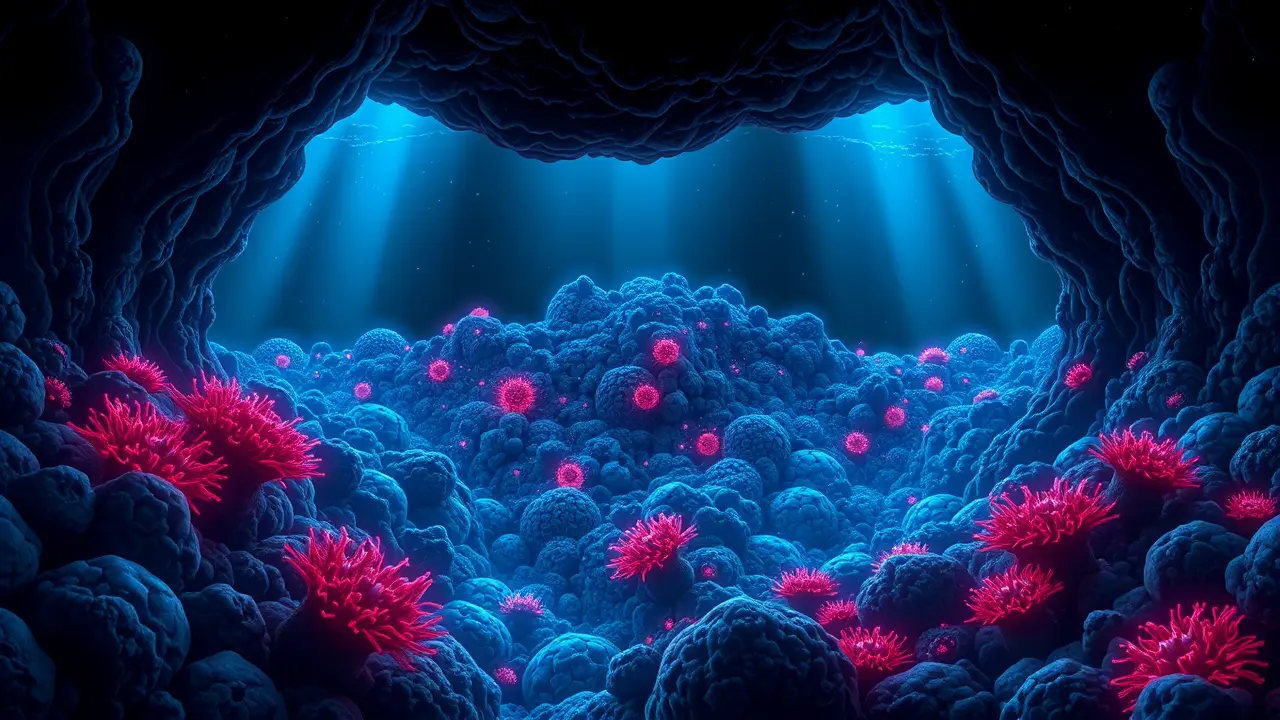
SciencebiologyMicrobiology
Microbes that breathe rust could help save Earth’s oceans
RA
Rachel Adams
9 hours ago7 min read2 comments
In the dark, oxygen-starved realms of the ocean floor, a quiet revolution is underway, led by microorganisms so small they are invisible to the naked eye yet possess the power to reshape marine ecosystems on a global scale. Researchers from the University of Vienna have identified a unique group of bacteria, colloquially dubbed MISO for their role in the 'Microbial Sulfur Oxidation' process, which perform a kind of geological respiration, using iron minerals as a terminal electron acceptor to oxidize toxic hydrogen sulfide.This biological alchemy not only provides the microbes with energy but also converts the poisonous sulfide into benign sulfate, effectively detoxifying vast aquatic environments. This discovery fundamentally recalibrates our understanding of the planet's biogeochemical cycles, revealing that the intricate dance between sulfur and iron, elements long thought to be governed primarily by abiotic chemical reactions, is in fact being choreographed by biology.The implications are profound, particularly in the context of the expanding oceanic dead zones—hypoxic areas where life suffocates due to plummeting oxygen levels, often triggered by agricultural runoff and climate change. These dead zones are frequently characterized by the buildup of hydrogen sulfide, a compound lethal to most complex marine life.The MISO bacteria, by outcompeting the slower chemical oxidation pathways, act as a natural, biological firebreak, preventing the catastrophic spread of this toxic gas and helping to maintain the delicate ecological balance necessary for fisheries and biodiversity. It is a stark reminder that the most critical environmental engineers are often the smallest, operating in the sediments and deep waters, performing a service we are only just beginning to appreciate.This process echoes the Great Oxidation Event billions of years ago, when early microbes transformed Earth's atmosphere, and it underscores a modern truth: to heal our ailing oceans, we must first understand and protect the invisible workforce within them. The research, published in a leading geobiology journal, suggests that fostering these microbial communities could become a novel strategy for mitigating human impact, a natural solution emerging from the very rust that permeates the seafloor, offering a glimmer of hope in the face of escalating environmental crises.
#featured
#microbes
#bacteria
#iron minerals
#sulfide oxidation
#sulfur cycle
#ocean dead zones
#ecological balance
#University of Vienna
Stay Informed. Act Smarter.
Get weekly highlights, major headlines, and expert insights — then put your knowledge to work in our live prediction markets.
Related News
© 2025 Outpoll Service LTD. All rights reserved.
